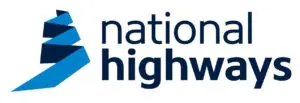Did you know?
- There are laws limiting the amount of driving a van driver can do each day. These laws also require minimum rest periods.
- Drivers breaking these rules can receive large fines and even custodial sentences.
- There are 2 different sets of rules that can apply. It is important you know which you need to follow.
You’ll probably be driving under GB Domestic Rules but you will need to check.
The easiest way to understand which rules apply is to assume the more onerous EU Rules will apply unless there is an exemption; these exemptions are legally defined and can be seen at www.gov.uk/drivers-hours/exemptions-from-eu-law. If these apply, you will need a tacho too.
If exempt, then the simpler GB Domestic rules apply.
The single biggest exemption to the EU Rules is that the vehicles below 3.5t GVW are not covered. This means most vans are exempt and will need to use the GB Domestic rules unless they are towing.
Vans used for towing may still be exempt but for a different reason – you’ll need to check.
More Info
GB Domestic Drivers’ Hours
- Drivers must not drive for more than 10 hours in any 1 day.
- Drivers must not be on duty for more than 11 hours in any 1 day.
- Drivers must record their hours on a weekly record sheet or on a tachograph.
EU Rules
- Drivers must not drive more than 9 hours in a day – this can be extended to 10 hours twice a week or,
- 56 hours in a week or 90 hours in any 2 consecutive weeks.
- The EU Rules remain valid in the UK despite Brexit.
Driving when tired is responsible for 1 in 5 incidents.
Under GB Domestic rules, a driver who does not drive for more than 4 hours on each day of the week is exempt from the daily duty limit for the whole week.
Drivers who do not use public roads or who are in the armed forces, police, or fire brigade are exempt from GB Domestic rules.
EU rules also require:
- at least 11 hours rest every day – this can be reduced to 9 hours rest 3 times between any 2 weekly rest periods.
- an unbroken rest period of 45 hours every week – this can be reduced to 24 hours every other week.
- a break or breaks totalling at least 45 minutes after no more than 4 hours 30 minutes driving.
- weekly rest after 6 consecutive 24-hour periods of working, starting from the end of the last weekly rest period taken.

